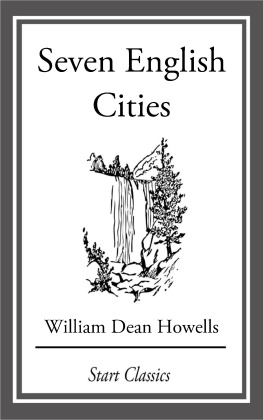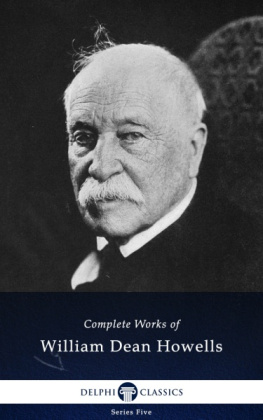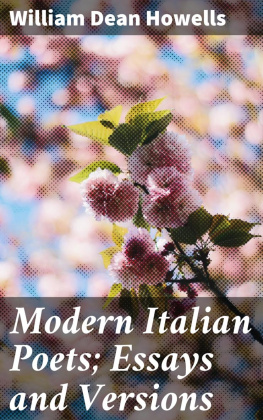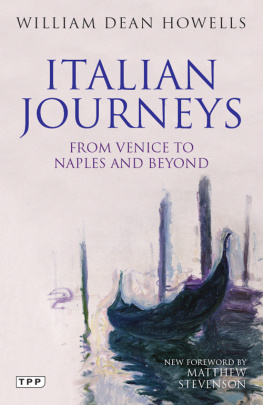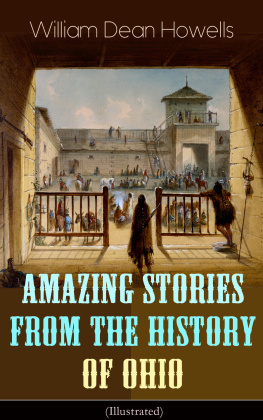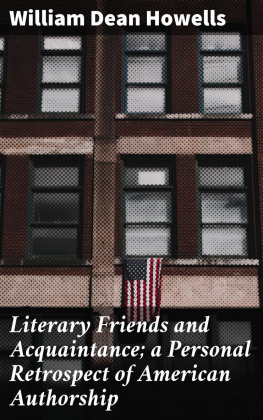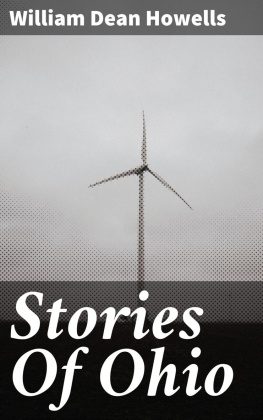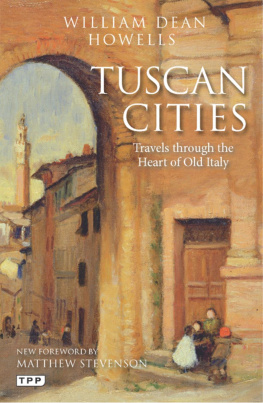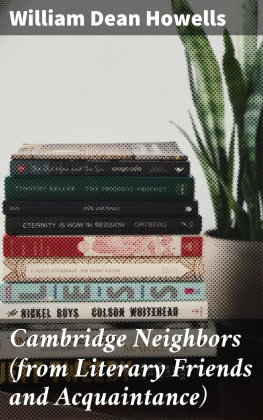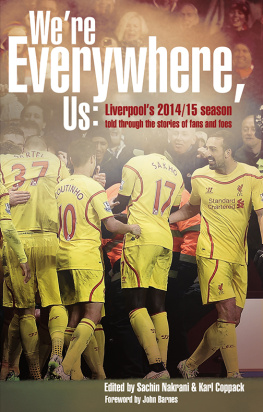William Dean Howells - Seven English Cities
Here you can read online William Dean Howells - Seven English Cities full text of the book (entire story) in english for free. Download pdf and epub, get meaning, cover and reviews about this ebook. year: 2015, publisher: Start Classics, genre: Art. Description of the work, (preface) as well as reviews are available. Best literature library LitArk.com created for fans of good reading and offers a wide selection of genres:
Romance novel
Science fiction
Adventure
Detective
Science
History
Home and family
Prose
Art
Politics
Computer
Non-fiction
Religion
Business
Children
Humor
Choose a favorite category and find really read worthwhile books. Enjoy immersion in the world of imagination, feel the emotions of the characters or learn something new for yourself, make an fascinating discovery.
- Book:Seven English Cities
- Author:
- Publisher:Start Classics
- Genre:
- Year:2015
- Rating:5 / 5
- Favourites:Add to favourites
- Your mark:
- 100
- 1
- 2
- 3
- 4
- 5
Seven English Cities: summary, description and annotation
We offer to read an annotation, description, summary or preface (depends on what the author of the book "Seven English Cities" wrote himself). If you haven't found the necessary information about the book — write in the comments, we will try to find it.
Seven English Cities — read online for free the complete book (whole text) full work
Below is the text of the book, divided by pages. System saving the place of the last page read, allows you to conveniently read the book "Seven English Cities" online for free, without having to search again every time where you left off. Put a bookmark, and you can go to the page where you finished reading at any time.
Font size:
Interval:
Bookmark:
I will suppose the reader not to be going to Oxford, but, in compliance with the scheme of this paper, to Manchester, where there is perhaps no other reason for his going. He will there, for one thing, find the supreme type of the railroad hotel which in England so promptly shelters and so kindly soothes the fluttered exile. At Manchester, even more than at Liverpool, we are imagined in the immense railroad station hotel, which is indeed perhaps superorganized and over-convenienced after an American ideal: one does not, for instance, desire a striking, or even a ticking, clock in the transom above one's bedroom door; but the like type of hotel is to be found at every great railroad centre or terminal in England, and it is never to be found quite bad, though of course it is sometimes better and sometimes worse. It is hard to know if it is more hotel or more station; perhaps it is a mixture of each which defies analysis; but in its well- studied composition you pass, as it were, from your car to your room, as from one chamber to another. This is putting the fact poetically; but, prosaically, the intervening steps are few at the most; and when you have entered your room your train has ceased to be. The simple miracle would be impossible in America, where our trains, when not shrieking at the tops of their whistles, are backing and filling with a wild clangor of their bells, and making a bedlam of their stations; but in England they
"Come like shadows, so depart,"
and make no sound within the vast caravansary where the enchanted traveller has changed from them into a world of dreams.
I
These hotels are, next to the cathedrals, perhaps the greatest wonder of England, and in Manchester the railway hotel is in some ways more wonderful than the cathedral, which is not so much planned on our native methods. Yet this has the merit, if it is a merit, of antedating our Discovery by nearly a century, and pre- historically it is indefinitely older. My sole recorded impression of it is that I found it smelling strongly of coal- gas, such as comes up the register when your furnace is mismanaged; but that is not strange in such a manufacturing centre; and it would be paltering with the truth not to own a general sense of the beauty and grandeur in it which no English cathedral is without. The morning was fitly dim and chill, and one could move about in the vague all the more comfortably for the absence of that appeal of thronging monuments which harasses and bewilders the visitor in other cathedrals; one could really give one's self up to serious emotion, and not be sordidly and rapaciously concerned with objects of interest. Manchester has been an episcopal see only some fifty years; before that the cathedral was simply T' Owd Church, and in this character it is still venerable, and is none the less so because of the statue of Oliver Cromwell which holds the chief place in the open square before it. Call it an incongruity, if you will, but that enemy of episcopacy is at least not accused of stabling his horses in The Old Church at Manchester, or despoiling it of its sacred images and stained glass, and he merits a monument there if anywhere.
With the constantly passing trams which traverse the square, he is undoubtedly more significant of modern Manchester than the episcopacy is, and perhaps of that older Manchester which held for him against the king, and that yet older Manchester of John Bradford, the first martyr of the Reformation to suffer death at the stake in Smithfield. Of the still yet older, far older Manchester, which trafficked with the Greeks of Marseilles, and later passed under the yoke of Agricola and was a Roman military station, and got the name of Maen-ceaster from the Saxons, and was duly bedevilled by the Danes and mishandled by the Normans, there may be traces in the temperament of the modern town which would escape even the scrutiny of the hurried American. Such a compatriot was indeed much more bent upon getting a pair of cotton socks, like those his own continent wears almost universally in summer, but a series of exhaustive visits to all the leading haberdashers in Manchester developed the strange fact that there, in the world-heart of the cotton-spinning industry, there was no such thing to be found. In Manchester there are only woollen socks, heavier or lighter, to be bought, and the shopmen smile pityingly if you say, in your strange madness, that woollen socks are not for summer wear. Possibly, however, it was not summer in Manchester, and we were misled by the almanac. Possibly we had been spoiled by three weeks of warm, sunny rain on the Welsh coast, and imagined a vain thing in supposing that the end of August was not the beginning of November.
II
I thought Manchester, however, as it shows itself in its public edifices, a most dignified town, with as great beauty as could be expected of a place which has always had so much to do besides looking after its figure and complexion. The very charming series or system of parks, public gardens, and playgrounds, unusual in their number and variety, had a sympathetic allure in the gray, cool light, even to the spectator passing in a hurried hansom. They have not the unity of the Boston or Chicago parkways, and I will own that I had not come to Manchester for them. What interested me more were the miles and miles of comfortable- looking little brick houses in which, for all I knew, the mill- labor dwelt. Very possibly it did not; the mills themselves are now nearly all, or mostly, outside of Manchester, and perhaps for this reason I did not find the slums, when shown them, very slummy, and I saw no such dreadful shapes of rags and dirt as in Liverpool. We passed through a quarter of large, old-fashioned mansions, as charming as they were unimagined of Manchester; but these could not have been the dwellings of the mill-hands, any more than of the mill-owners. The mill-owners, at least, live in suburban palaces and villas, which I fancy by this time are not
--"pricking a cockney ear,"
as in the time of Tennyson's "Maud."
What wild and whirling insolences, however, the people who have greatly made the greatness of England have in all times suffered from their poets and novelists, with few exceptions! One need not be a very blind devotee of commercialism or industrialism to resent the affronts put upon them, when one comes to the scenes of such mighty achievement as Liverpool, and Manchester, and Sheffield; but how mildly they seem to have taken it all--with what a meek subordination and sufferance! One asks one's self whether the society of such places can be much inferior to that of Pittsburg, or Chicago, or St. Louis, which, even from the literary attics of New York, we should not exactly allow ourselves to spit upon. Practically, I know nothing about society in Manchester, or rather, out of it; and I can only say of the general type, of richer or poorer, as I saw it in the streets, that it was uncommonly good. Not so many women as men were abroad in such weather as we had, and I cannot be sure that the sex shows there that superiority physically which it has long held morally with us. One learns in the north not to look for the beautiful color of the south and west; but in Manchester the average faces were intelligent and the figures good.
III
With such a journal as the Manchester Guardian still keeping its high rank among English newspapers, there cannot be question of the journalistic sort of thinking in the place. Of the sort that comes to its effect in literature, such as, say, Mrs. Gaskell's novels, there may also still be as much as ever; and I will not hazard my safe ignorance in a perilous conjecture. I can only say that of the Unitarianism which eventuated in that literature, I heard it had largely turned to episcopacy, as Unitarianism has in our own Boston. I must not forget that one of our religions, now a dying faith, was invented in Manchester by Ann Lee, who brought, through the usual persecutions, Shakerism to such spiritual importance as it has now lost in these States. Only those who have known the Shakers, with their good lives and gentle ways, can regret with me the decline of the celibate communism which their foundress imagined in her marital relations with the Lancashire blacksmith she left behind her.
Font size:
Interval:
Bookmark:
Similar books «Seven English Cities»
Look at similar books to Seven English Cities. We have selected literature similar in name and meaning in the hope of providing readers with more options to find new, interesting, not yet read works.
Discussion, reviews of the book Seven English Cities and just readers' own opinions. Leave your comments, write what you think about the work, its meaning or the main characters. Specify what exactly you liked and what you didn't like, and why you think so.

